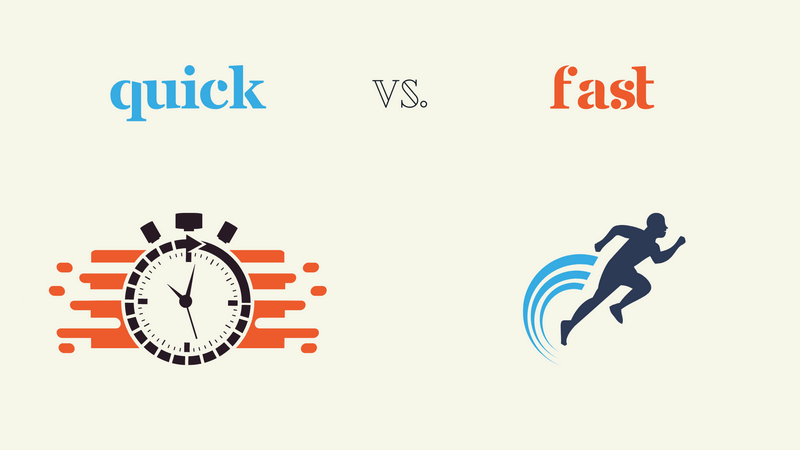Quick vs. Quickly: Is Quickly an Adjective or Adverb?
When it comes to the English language, understanding the difference between similar words can sometimes be confusing. One common pair that often causes confusion is "quick" vs. "quickly." Many people wonder whether "quickly" is an adjective or adverb and how to use these words correctly in a sentence. In this article, we will explore the differences between "quick" and "quickly," providing clear explanations and examples to help clarify when to use each one https://blog.appewa.com/fast-vs-quick-vs-quickly-spot-the-difference/ .

What is the Difference Between Quick and Quickly?
The key difference between "quick" and "quickly" lies in their grammatical roles in a sentence. "Quick" is an adjective, while "quickly" is an adverb. Understanding the distinction between these two parts of speech will help you use them correctly in different contexts.
Quick: The Adjective
As an adjective, "quick" describes a noun or pronoun by indicating speed or a lack of delay. It tells you more about a person, object, or action. For example:
She is a quick learner. (Here, "quick" describes the noun "learner," suggesting that the person learns with speed.)
He made a quick decision. (In this sentence, "quick" modifies the noun "decision," indicating that the decision was made in a short amount of time.)
When you use "quick," you are referring to something that is fast or efficient in nature. The word is used to describe a noun, which is why it functions as an adjective.
Quickly: The Adverb
"Quickly," on the other hand, is an adverb. Adverbs modify verbs, adjectives, or other adverbs, often answering questions like how, when, where, or to what degree something happens. "Quickly" specifically describes how an action is performed, giving more information about the speed of the action. For example:
She ran quickly to catch the bus. (Here, "quickly" modifies the verb "ran," telling us how she ran.)
He finished his work quickly. (In this example, "quickly" modifies the verb "finished," indicating the speed at which he completed the task.)
Notice that "quickly" answers the question "how?" It tells us how the action of running or finishing work was carried out.
Quick vs. Quickly: Common Mistakes
A common mistake people make is using "quickly" when "quick" should be used, or vice versa. For example:
Incorrect: She is running quick to the store.
Correct: She is running quickly to the store.
(Here, "running" is a verb, so the adverb "quickly" should be used to describe the action.)Incorrect: He made a quickly decision.
Correct: He made a quick decision.
(Since "decision" is a noun, it requires the adjective "quick.")
Understanding when to use "quick" and "quickly" will prevent these common errors and help you communicate more clearly and effectively.
When to Use "Quick" vs. "Quickly"
To decide when to use "quick" or "quickly," always ask yourself what you are describing. If you are describing a noun or pronoun, you should use "quick." If you are describing how an action is performed, use "quickly."
Use "quick" when talking about a person, object, or situation that is fast or efficient:
She gave a quick response.
He is a quick thinker.
Use "quickly" when talking about how an action is performed:
They completed the project quickly.
The car sped quickly down the highway.














